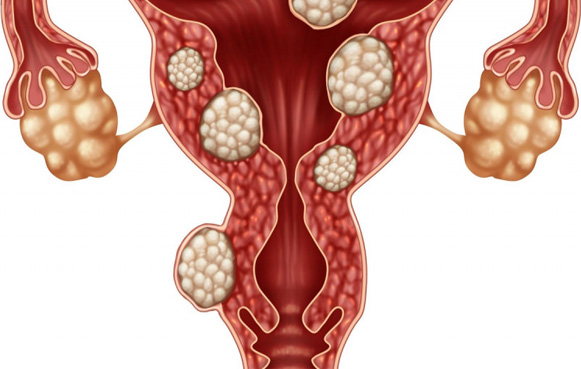Gynecological Diseases And Treatment Options
We treat our patients from a comprehensive approach for both diagnosis and surgical treatment of women’s cancers and complex benign gynecological diseases. These include cervical cancer, ovarian cancer, endometrial cancer, diseases as the endometriosis, uterine myomas, ovarian cysts, among others.
Gynecological Cancers
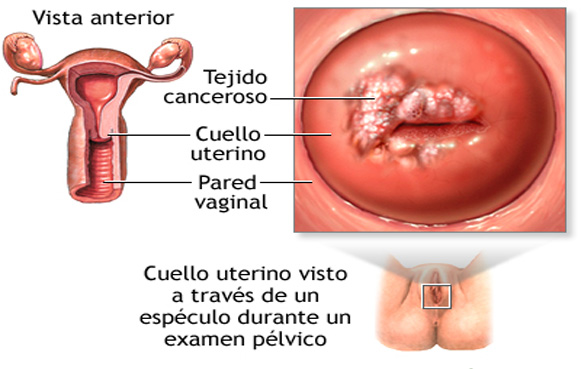
Cancer is a disease in which certain cells in the body grow out of control. The cervix or neck is the lower part of the uterus that joins the uterine body with the vagina. The function of the uterus (or womb) is to allow embryonic-fetal growth during pregnancy. The neck, for its part, prevents the loss of the fetus during…
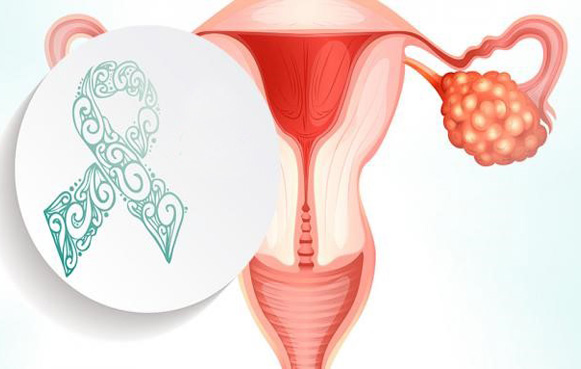
Cancer is a disease in which certain cells in the body grow out of control. Women have two ovaries located in the pelvis, on the sides of the uterus. The main function of the ovaries is to produce and release the egg to allow conception, along with the production of female hormones (estrogen and progesterone)…
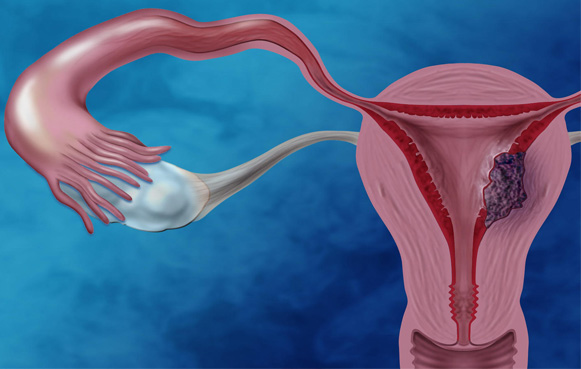
Cancer is a disease in which certain cells in the body grow out of control. The uterus (or womb), whose function is to allow embryonic-fetal growth during pregnancy, is made up of three layers. The inner layer is called the endometrium and is what is shed with each menstrual cycle in the form of bleeding…
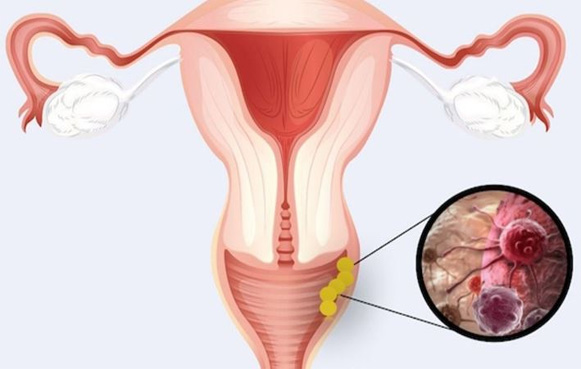
Cancer is a disease in which certain cells in the body grow out of control. The vulva represents the external part of the female genital organs, while the vagina is the organ that connects the uterus with the vulva. There are no effective methods of prevention or early diagnosis of vaginal and vulvar cancer…
Uterine Myomas
Myomas are rounded and solid formations of a benign nature, which originate from the muscle fibers of the uterine wall. Myomas can be single or multiple and are generated from hormonal stimulation. Therefore, uterine fibroids disappear after menopause.
Ovarian cysts
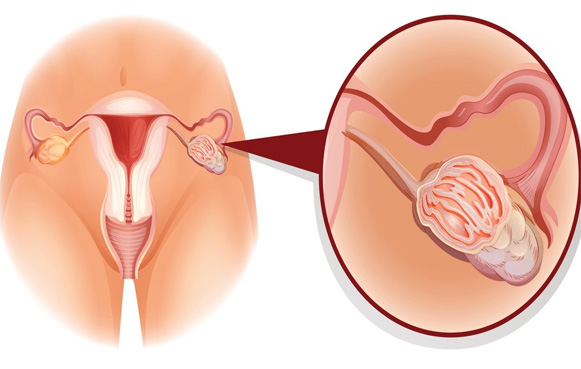
Ovarian cysts are formations that usually have a liquid content, and rarely can have solid structures inside. They are very common in women up to 40-45 years of age and the vast majority usually remit spontaneously without giving symptoms. However, on rare occasions they can be large enough…
Endometriosis

Endometriosis is a benign disease that affects young women before menopause. This depends on the hormonal stimulus (estrogens) and that, therefore, is definitively and spontaneously cured with menopause. Endometriosis occurs when endometrial tissue is deposited outside the uterus…
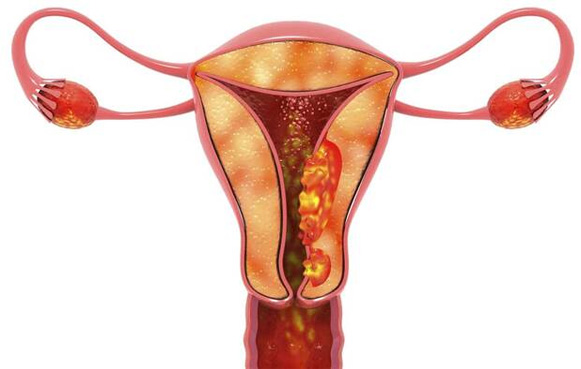
Pre-malignant diseases of the uterine cervix are caused by a sexually transmitted infection: the human papillomavirus (HPV). If not properly diagnosed and treated, these pre-malignant conditions can progress to cervical cancer over many years…
Stress Urinary Incontinence
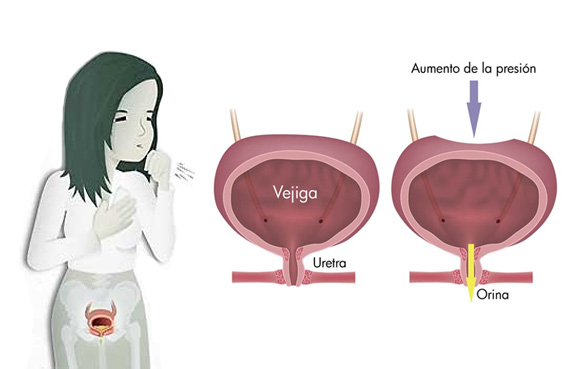
It is a condition that occurs when urine leaks from the bladder during physical activity or exertion. Stress urinary incontinence is the most common type of urinary incontinence in women. Stress incontinence occurs when the muscles that control the flow of urine do not work properly…
Genital and/or Uterine Prolapse
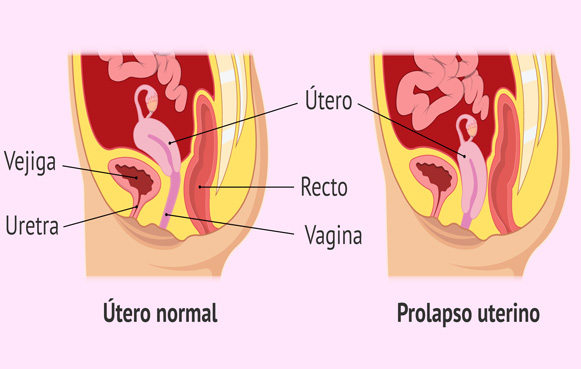
It occurs when the womb (uterus), and/or bladder, and/or rectum drop and put pressure on the vaginal area. But why do I have uterine and/or genital prolapse? Muscles, ligaments, and other structures support these organs in the pelvis. If these tissues are weak, the organs fall into the birth canal, which is called prolapse…
General Gynecology
Gynecological Check-up
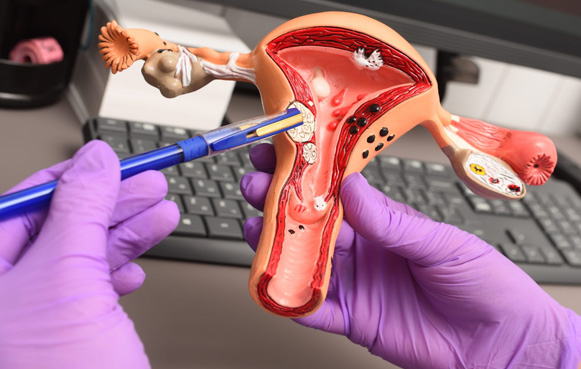
Every woman should have a gynecological check-up every 2-3 years. It consists of the evaluation of the general health of the woman, carrying out the pertinent controls according to the different ages of the woman. Each woman symbolizes a different reality and, therefore, they require special attention for each particular situation. The foundation…
Contraceptive Methods

Emergency oral contraception should be used as soon as possible after unprotected intercourse, but ideally no later than 24-48 hours. Then the effectiveness decreases considerably. The main mechanism of action is the inhibition of ovulation. Due to the high hormonal load of the pills, it can cause…
Menstrual Cycle Alteration

Normally, most women have their period every 28 days for 4 days. However, a menstruation that lasts between 2 and 7 days, or that occurs every 21 or up to 35 days, expresses the normal range of variation without this expressing an alteration. Menstrual cycles that are within this normal range do not require…
Gynecological Ultrasound
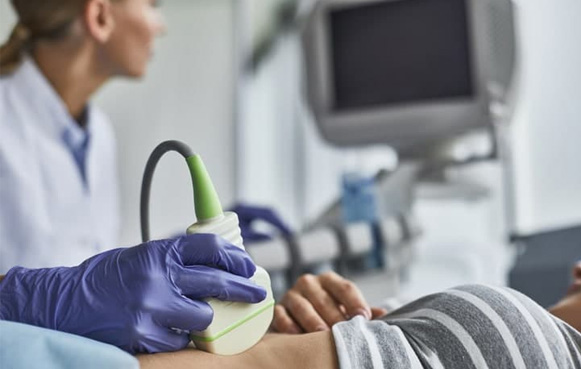
Gynecological ultrasound is an imaging test that uses ultrasound to generate images. It is one of the most widely used diagnostic tests in gynecology and is used to examine and characterize the internal genital organs (uterus, endometrium, and ovaries), as well as monitoring the development and growth of a fetus…
Breast Pathology and Menopause
Breast self-examination
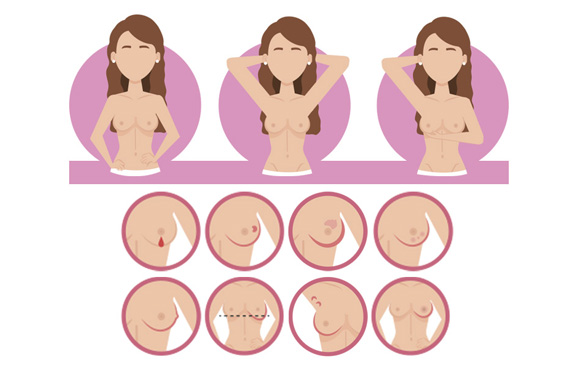
Breast self-examination is a simple method that, if done regularly and methodically, can detect some breast cancers. However, breast self-examination should never replace mammography as a method of early detection of breast cancer. We recommend watching this video explaining…
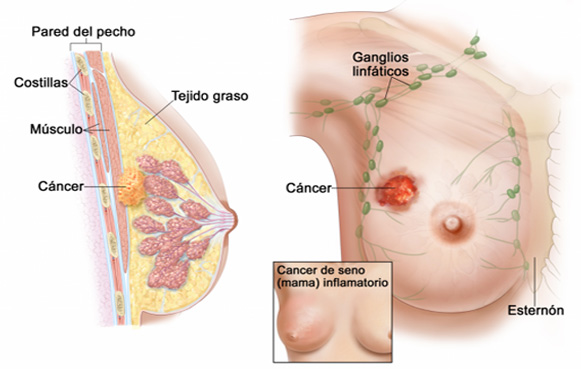
Breast cancer is the most common malignant tumor in women. Fortunately, the vast majority of tumors are diagnosed in very early stages thanks to mammography, so overall survival is very good. Since its exact causes are not yet known, it is not possible to prevent it. Hence, the importance of diagnosis…
Breast Lump
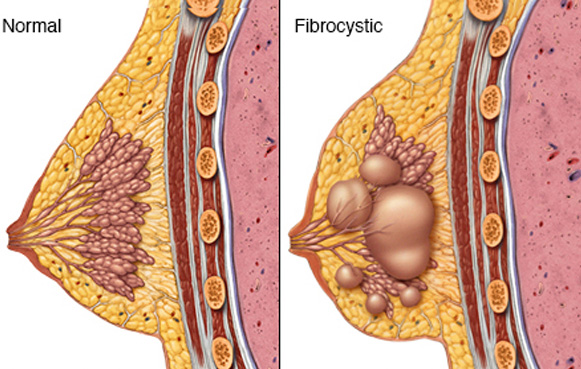
Breast lump, fibroadenomas, fibrocystic breasts: Breast lump represents a common cause of anxiety and concern in the patient. Although the vast majority of cases are benign, in certain circumstances it is necessary to perform a histological study to determine their nature. What can be the causes of the breast lump? …
Menopause
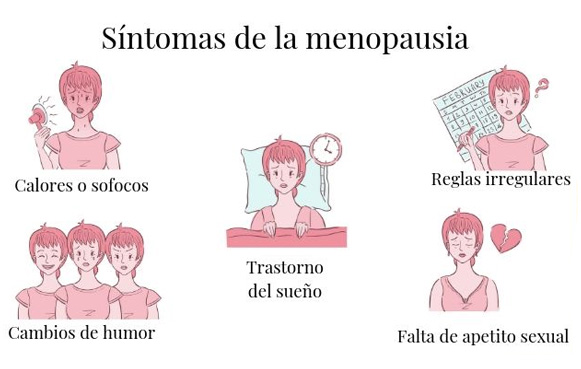
Menopause is a natural state in a woman’s life, in which the hormonal function of the ovaries ceases and, therefore, is expressed with the definitive absence of menstruation. Generally, this happens between 45-55 years, the usual average being 50 years. The diagnosis of menopause is made when the woman spends at least 1 year…
Cancer Survival

Cancer survival gives an approximation of the number of people with the same type and stage of a given cancer who remain alive over a period of time, and it varies by cancer type. Thus, in less aggressive cancers, 5 years is used as the cut-off point, while in more aggressive cancers, it is 3 years at the time of diagnosis…
Lifestyle Changes

Menopause brings with it a series of physical and functional changes, as well as emotional ones. To prevent these changes from being overwhelming and to manage them better, it is important to lead a healthy life. With small changes and consistency this period can be as full as previous years. It is recommended: Proper nutrition and …
Surgical Treatment

Surgical treatment of breast cancer with the sentinel node technique: Currently, the surgical treatment of breast cancer is divided into surgery on the breast and surgery on the armpit. Surgical treatments on the breast: Conservative surgery (lumpectomy or quadrantectomy): This process consists of the partial removal of the tumor with the help of a system…
Menopause Treatment

The treatment of menopause is complex and must be adjusted according to the needs of each patient. Generally, treatment of each particular symptom is chosen, unless there is a very significant condition that justifies hormone replacement therapy. The goal is always to improve the quality of life for women…
Specialists in the Treatment of Gynecological diseases in Spain
We help you with the most common diseases of the female reproductive system, the best treatments and care to prevent them from reproducing.

Your Trusted Gynecologist
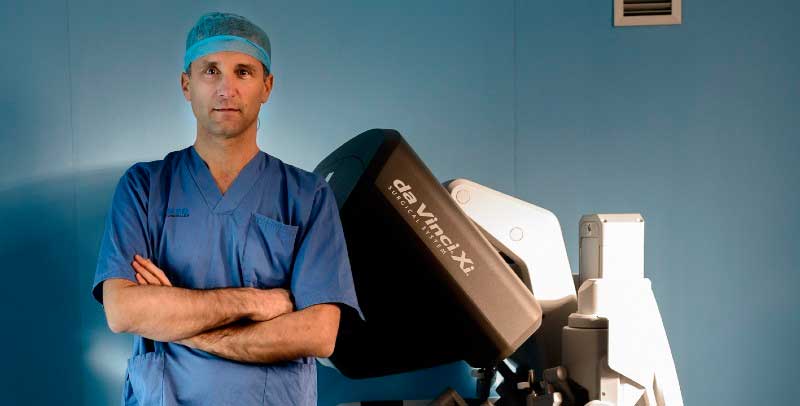
Pathologies or gynecological diseases affect the reproductive system of women, that is, the female sexual organs. Most women suffer from some type of gynecological symptoms throughout their lives. The most common diseases are usually:
- Dysmenorrhea
- Premenstrual syndrome
- Dysfunctional bleeding
- Pelvic pain
- Endometriosis
- Ovarian cystsPolycystic ovary syndrome
- Fibroids
- Cervical dysplasia
- Human papillomavirus (HPV) infection
- Urinary incontinence
- Genital prolapse
Gynecologic symptoms may resemble other medical conditions or urologic problems. Always consult a gynecologist who is a health care specialist if that is the case you do not have one, Dr. Lucas Minig offers to be your trusted doctor who will give you an accurate diagnosis if you have any of these symptoms:
- Bleeding between periods.
- Frequent and urgent need to urinate or a burning sensation when urinating
- Abnormal vaginal bleeding, particularly during or after intercourse
- Pelvic pain or pressure, other than menstrual cramps, or persistent abdominal swelling
- Itching, burning, swelling, redness, or pain in the vaginal area
- Sores or lumps in the genital area
- Vaginal discharge with an unpleasant or unusual odor, or an unusual color
- Increased vaginal discharge
- Pain or discomfort during intercourse
Recognizing symptoms early and seeing a doctor right away increases the chance of successful treatment.

